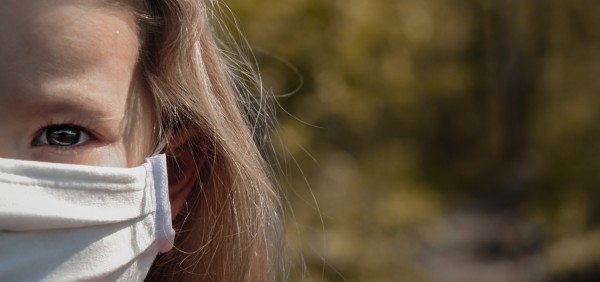How Children Can Transmit COVID-19, Here’s What Scientists Know

Families with older kids were found to have the highest rate of contagions to other members, specifically, ‘18.6 percent of any age range’ while homes with younger children reportedly ‘had the least spread of only 5.3 percent.’
Every year, children are the primary drivers of spread for viruses that lead to flu, not to mention, the common cold.
In March, when COVID-19 hit the United States, Vanderbilt School of Medicine's Tina Hartert said she was expecting the same statement to be true for COVID-19.
However, a few months after, Hartert, as well as the other experts in respiratory disease are still attempting to pin down the indefinable virus, which has submitted just clues about its impacts on children and their capability of spreading contagion.
What has turned out to be clear is that young individuals, particularly younger kids, don't get almost as sick as adults, particularly older individuals, and seldom die from the said infectious disease.
ALSO READ: Heartburn Medication and Its Link to COVID-19
COVID-19 in Children
For instance, a meta-analysis of present research in Pediatric Pulmonology studied at over 500 cases among children in China and Spain who are below 18 years old found that "only nine children" experienced serious or critical COVID-19 case. More so, only one experienced underlying condition died.
Elsewhere, scientists have reportedly teased out developing and at times, opposing answers to basic question son COVID-19 and children, with just "enough fitting together" to suggest an image's outline.
Specifically, for research published in May, scientists evaluated reports complaints from more than 600 individuals form two China cities: Wuhan and China.
In this comparatively small sample size, researchers found that children were a bit over one-third as possible to be infested as adult individuals.
However, the same study showed that children had approximately three times as many chances to get infected during school opening, "effectively cancelling the difference."
A Study in South Korea
Recent research of more than 5,500 infected individuals from South Korea, as well as their almost 60,000 contacts, found kids below 10 years old, spread less frequently to adults while those aged from 10 to 19 years old, infect others, as well as adults, are doing.
Families that have older kids were found to have the highest rate of contagions to other members, specifically, "18.6 percent of any age range" while homes with younger children reportedly "had the least spread of only 5.3 percent. The general average, based on this South Korean study, was 11.8 percent.
Furthermore, the same study presented evidence too, that children, including asymptomatic ones, were as possible to be contagious.
Several other studies place children in the middle of the so-called "transmitter events." In Israel, for instance, new COVID-19 cases have risen from "fewer than 50 each day" a couple of months back, before the reopening of schools, to over 1,500 each day at present.
Such figures followed outbreaks in schools that infested at least over, 1,300, students and almost 700 staff. In connection to this, it was recently reported that an "overnight camp for teens aged 13 to 18 years in Missouri closed" the following infection in 82 kids and staff at the campsite.
DON'T MISS THIS: Black Children More Likely to Die After an Operation Compared to Their White Peers, Study Says
What Happens to Children if They Get Infected with the Virus?
According to emerging pathogens expert, Derek Cummings, form the University of Florida, he is not convinced by the study evidence that children are less likely to transfer or spread COVID-19.
Specifically, his work with the "endemic coronavirus, relatives of COVID-19," presented that children are infected for the first time by COVID-19 by three, and acquire all "four coronavirus types by 20."
"Every other coronavirus," Cummings explained, infests children and spreads among other kids. Therefore, he added, "Why would we presume that this one does not?"
Hartet, on the other hand, says that the study is indicating that kids may not as frequently transmit the pandemic "would, once more, make COVID-19 an outlier."
She noted too that research showed kids are shedding the same quantity of COVID-19 virus as older individuals, which would suggest, they were fairly capable of transmitting the infection.
Therefore, Hartet explained, there are many things that would make it astounding if children would be found out to be less possible to spread the virus.
IN CASE YOU MISSED THIS: Some Children Likely to Experience Mysterious Brain Damage from COVID-19, Study Finds
Jul 24, 2020 08:20 AM EDT





